A tow hitch can be a great addition to any car, but it’s important to make sure that your car can handle the weight of a trailer or other heavy load before having one installed.
So many of you might be wondering, can I put a tow hitch on any car?
In this blog post, we’ll answer that question and give you some things to think about before making the decision to add a hitch to your car.
Can You Put A Tow Hitch On Any Car?
You can put a tow hitch on any car as long as the car has the proper towing capacity.
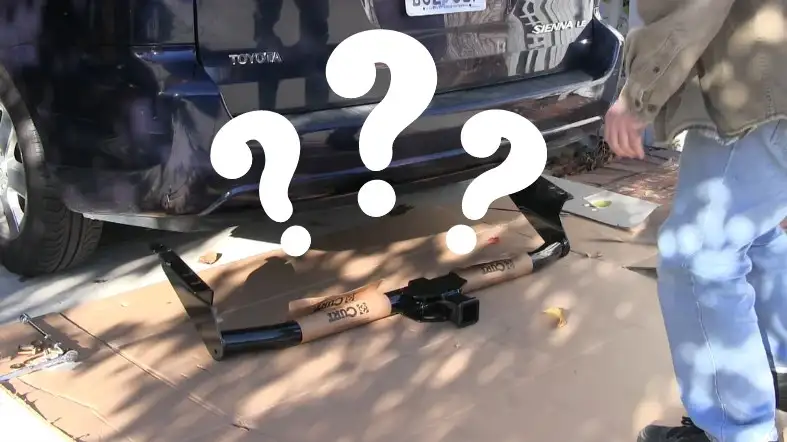
There are many factors that go into determining whether or not a car has the right towing capacity, including the make and model of the car, the engine size, and more.
How do you install a tow hitch?
Installing a tow hitch is a relatively easy process, but it will vary depending on the make and model of your car.
In general, you will need to:
1. Locate the tow hitch mounting points on your car.
These are usually located near the rear bumper.
2. If necessary, remove any trim or panels that are in the way of the mounting points.
3. Attach the tow hitch to the mounting points using the bolts that are provided.
4. Tighten the bolts to secure the hitch in place.
5. Reattach any trim or panels that were removed during installation.
6. Test the hitch by attaching it to a trailer and making sure everything is secure before driving.
What are the benefits of having a tow hitch?
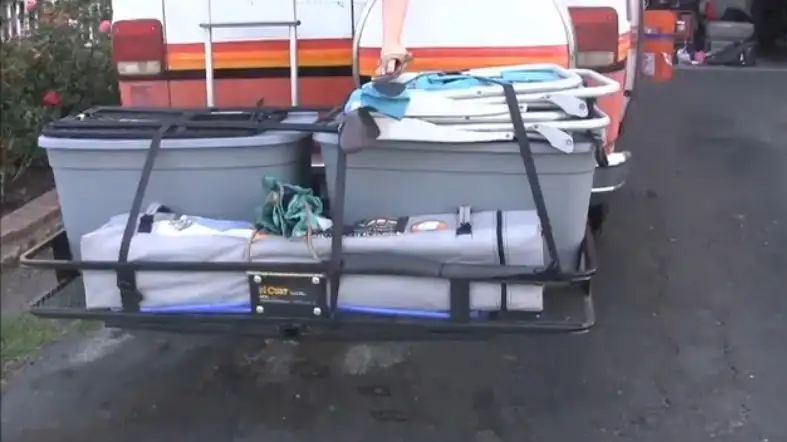
There are many benefits to having a tow hitch, including:
1. The ability to tow a trailer or camper.
This can be great for vacations or weekends away.
2. The ability to transport large items that won’t fit in your car.
This can be helpful when moving or transporting furniture.
3. The ability to use your car as a makeshift truck.
This can come in handy for hauling landscaping materials or other heavy items.
4. The ability to add more safety features to your car.
Some hitches come with built-in brake controllers or trailer lights, which can make driving safer.
5. The ability to increase the resale value of your car.
If you ever decide to sell your car, a tow hitch can be a selling point for potential buyers.
What Are The Drawbacks Of Having A Tow Hitch?
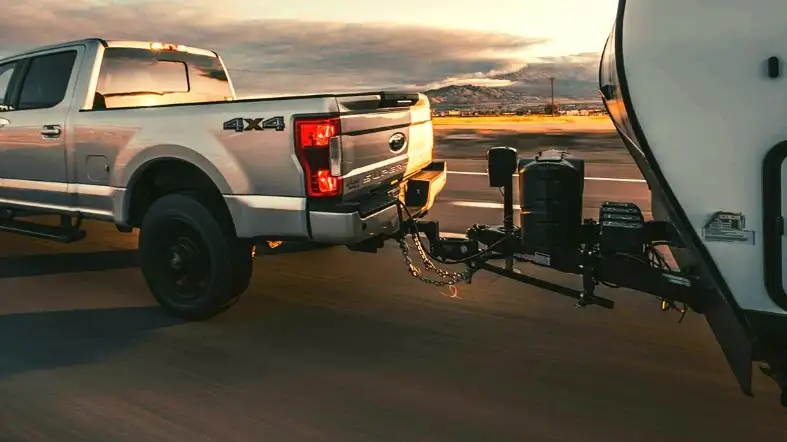
While there are many benefits to having a tow hitch, there are also some drawbacks to consider:
1. The added weight of the hitch can reduce your car’s fuel efficiency.
2. The hitch can make your car more difficult to park.
3. If not used properly, the hitch can damage your car’s bumper or frame.
4. The hitch can make your car less aerodynamic, which can impact driving performance.
5. If you don’t need it, the hitch can be an unnecessary expense.
How Much Does It Cost To Install A Tow Hitch?
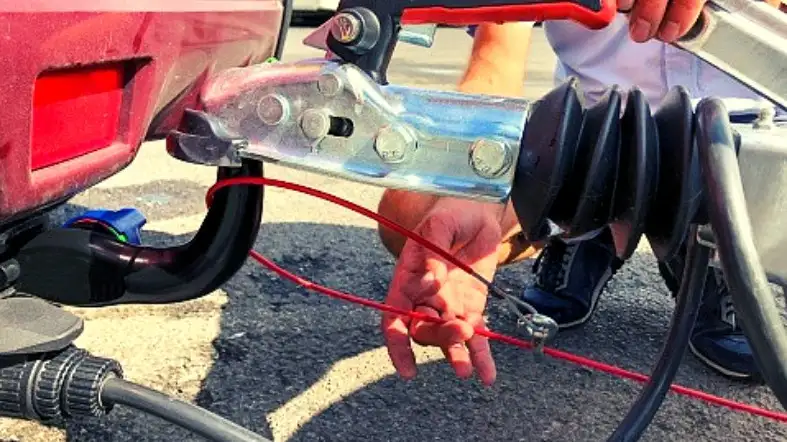
This is a difficult question to answer as it will vary depending on the make and model of your car, the tow hitch itself, and the person or company you have to install it.
In general, installing a tow hitch cost anywhere from $100 to $500 for the entire process.
Here are some popular models and their average hitch installation costs:
- 1. Toyota Tacoma: $120-$200
- 2. Honda Civic: $150-$250
- 3. Ford F-150: $180-$350
- 4. Chevrolet Silverado 1500: $200-$400
- 5. Audi Q5: $300-$500+
As you can see, the cost to install a tow hitch can vary significantly depending on the car you have.
It is always best to get a quote from a professional before having any work done.
Why Is It Important To Have The Right Towing Capacity?
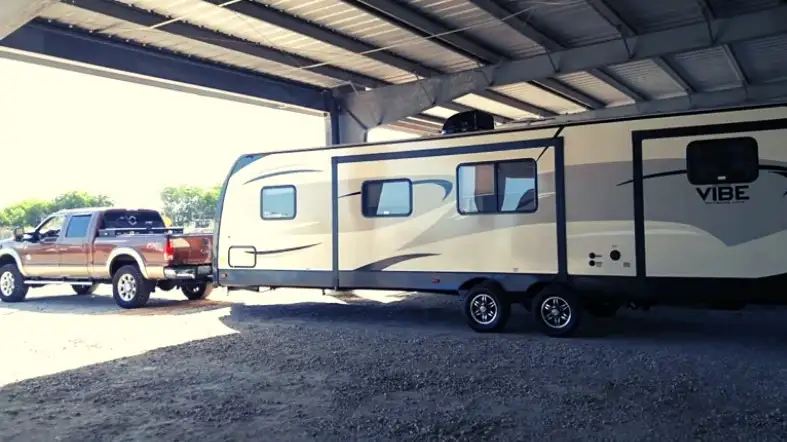
It is important to have the right towing capacity for two main reasons: safety and damage.
If your car does not have the proper towing capacity, it can be unsafe to tow a trailer or other heavy item.
This is because the car may not be able to handle the weight of the load, which could lead to an accident.
Additionally, if your car does not have the right towing capacity, it could be damaged by the workload.
This is because the car was not designed to handle that much weight and strain, and over time, this can lead to serious problems.
How Often Should You Check Your Tow Hitch?
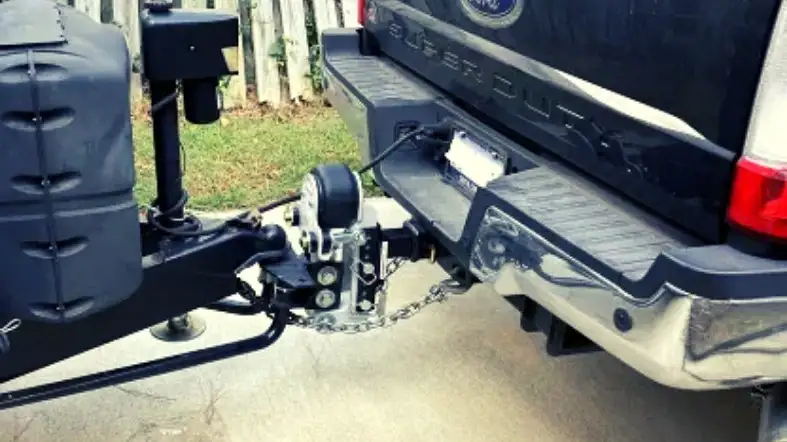
It is a good idea to check your tow hitch before each use.
This includes making sure the hitch is properly secured to the car and that all the bolts are tight.
You should also inspect the hitch for any signs of wear or damage.
If you notice any problems, it is best to have them fixed before using the hitch again.
What should you do if your tow hitch fails?
If your tow hitch fails, it is important to pull over as soon as possible and assess the situation.
If the hitch has come completely loose from the car, do not attempt to reattach it.
Instead, call for help and wait for a tow truck to arrive.
If the hitch is still attached to the car but is not functioning properly, you may be able to make it to a nearby service station or repair shop.
However, it is always best to err on the side of caution and call for help if you are not sure.
FAQs About Putting a Tow Hitch On Any Car
Can I Put A Hitch On My Honda CRV?
Yes, you can put a hitch on your Honda CRV.
Can I Put A Hitch On My Toyota Tacoma?
Yes, you can put a hitch on your Toyota Tacoma.
There are many different types of hitches available, so be sure to choose the one that best suits your needs.
Can I Put A Hitch On My Ford F150?
Yes, you can put a hitch on your Ford F-150.
If you plan on using your hitch for towing, make sure it is rated for the weight of the trailer you will be pulling.
Can I Put A Hitch On My Chevy Silverado?
Yes, you can put a hitch on your Chevy Silverado.
There are aftermarket hitches available that will fit your vehicle.
Can I Put A Hitch On My Audi Q5?
Yes, you can put a hitch on your Audi Q5.
There are a few different types of hitches available, so be sure to choose one that is compatible with your vehicle.
How Do I Know If My Car Has The Right Towing Capacity?
There are a few methods you can use to find out your car’s towing capacity.
One is to consult your car’s owner’s manual.
Another is to look up the towing capacity online using your car’s make, model, and year.
Final Words
Whether or not you should put a tow hitch on your car depends on your individual needs and circumstances.
If you frequently transport large items or trailers, then a hitch can be a great addition to your car.
